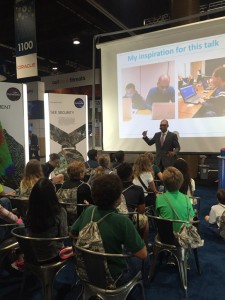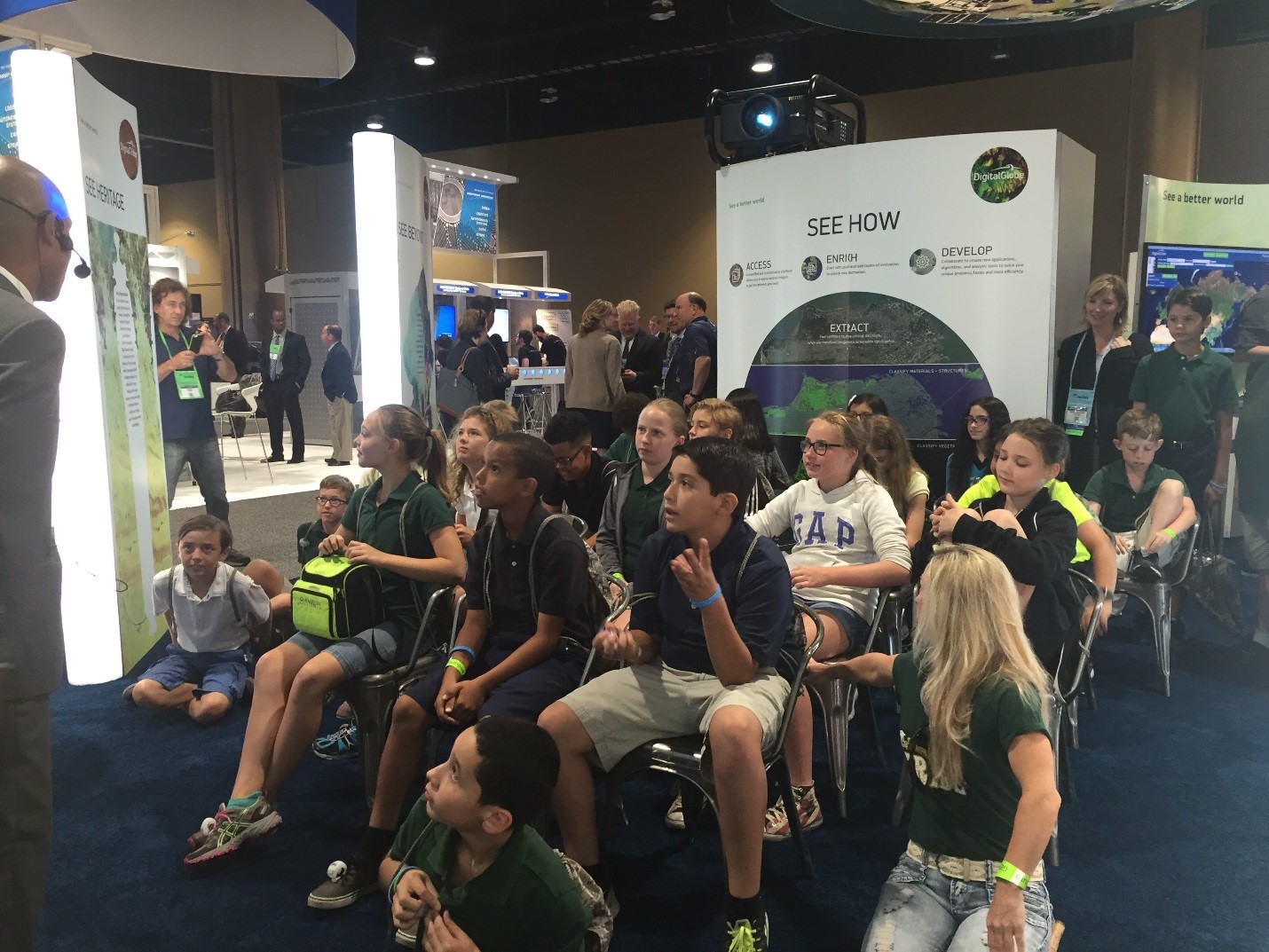 Last week the U.S. Geospatial Intelligence Foundation (USGIF)’s GEOINT 2016 Symposium brought together the sharpest minds in the government and commercial sectors focused on addressing national security challenges. With the backdrop of an increasingly complex operating environment, a few key themes emerged from the keynotes, panels, and discussions on the show floor.
Last week the U.S. Geospatial Intelligence Foundation (USGIF)’s GEOINT 2016 Symposium brought together the sharpest minds in the government and commercial sectors focused on addressing national security challenges. With the backdrop of an increasingly complex operating environment, a few key themes emerged from the keynotes, panels, and discussions on the show floor.
Innovation influencing strategy
“To surf the wave of innovation, we must paddle out front.” - Stephen Welby, Assistant Secretary of Defense for Research and Engineering U.S. national laboratories and R&D agencies showcased ongoing government efforts to “paddle out front” through strategic research projects designed to exploit big data in order to spot emerging health trends, enable world population mapping with greater precision and at scale, and apply deep learning to aid disaster response. DigitalGlobe is helping to accelerate these efforts and enable decisions to be made with confidence. We enable analogous R&D efforts for commercial customers through our Geospatial Big Data platform, GBDX. For example, we recently blogged about how the Facebook Connectivity Lab is leveraging GBDX to determine population densities across vast rural areas in 20 developing nations to inform its connectivity strategy. Research agencies also outlined new initiatives ranging from reverse engineering the brain to inform development of neural network and deep leaning capabilities, to the exploitation of open data sources for leading indicators, to geo-location of ground photos through analytic triage. They also challenged the GEOINT community "paddle out front" by proposing new research projects that help to advance the tradecraft.Harnessing the power of commercial innovation
“A key national security advantage is our ability to leverage innovation coming from commercial industry.” - Winston Beauchamp, Deputy Under Secretary of the Air Force for Space Agency leaders through their keynotes and panel discussions consistently messaged their desire to take full advantage of emerging big data analytics to deep learning capabilities. The Remote Sensing Revolution panel in particular sparked a robust debate on the opportunity to embrace a modernized regulatory policy for the commercial space industry designed to incentivize innovation that enables national security advantage. Panelists including Dr. Lisa Porter, Executive Vice President and Director of CosmiQ Works, funded by In-Q-Tel, cautioned that the unintended effects of over-regulation could result in the United States ceding its lead in technological innovation to other countries. DigitalGlobe recently partnered with In-Q-Tel CosmiQ Works to establish the SpaceNet challenge, which we announced at GEOINT. SpaceNet will facilitate a series of deep learning competitions to help advance automated feature identification and extraction algorithms against satellite imagery.Inspiring the next generation of talent
 “This is not just about bringing in new talent. It’s about growing [talent] and unleashing their potential.” - Robert Cardillo, NGA Director
USGIF and Agency leaders shared a collective vision for identifying and developing the next generation of GEOINT professionals with the talent and conviction to confront future security challenges. As the long-standing industry leader, DigitalGlobe supports this vision through its commitment to inspire students to pursue STEM fields of study. At GEOINT, DigitalGlobe introduced 5th graders to the world of satellites and maps. Our ultimate vision is to develop a curriculum to teach K-12 students how to map their world and enriches STEM curriculum in classrooms and after school programs across the country.
> Learn more about GBDX
> Sign up for the SpaceNet Challenge
Coming soon: DigitalGlobe’s K-12 Map the World curriculum
“This is not just about bringing in new talent. It’s about growing [talent] and unleashing their potential.” - Robert Cardillo, NGA Director
USGIF and Agency leaders shared a collective vision for identifying and developing the next generation of GEOINT professionals with the talent and conviction to confront future security challenges. As the long-standing industry leader, DigitalGlobe supports this vision through its commitment to inspire students to pursue STEM fields of study. At GEOINT, DigitalGlobe introduced 5th graders to the world of satellites and maps. Our ultimate vision is to develop a curriculum to teach K-12 students how to map their world and enriches STEM curriculum in classrooms and after school programs across the country.
> Learn more about GBDX
> Sign up for the SpaceNet Challenge
Coming soon: DigitalGlobe’s K-12 Map the World curriculum